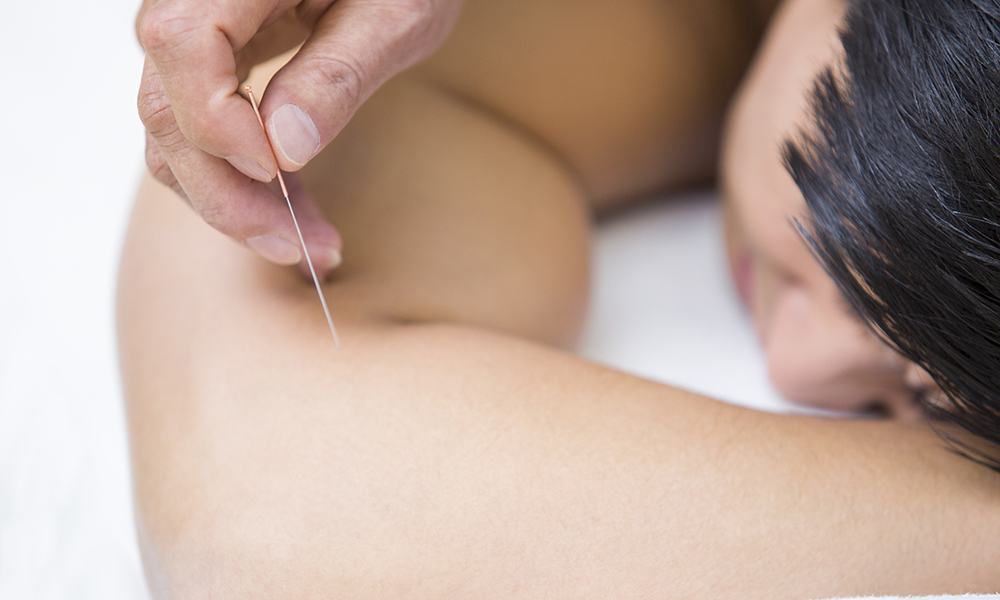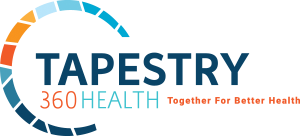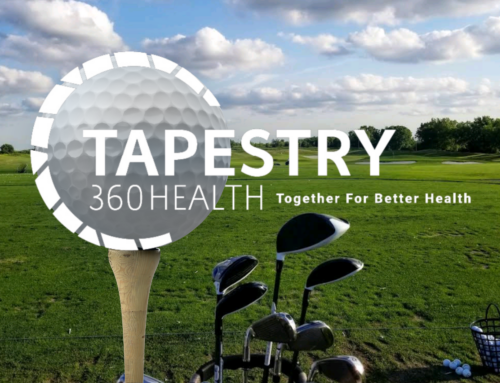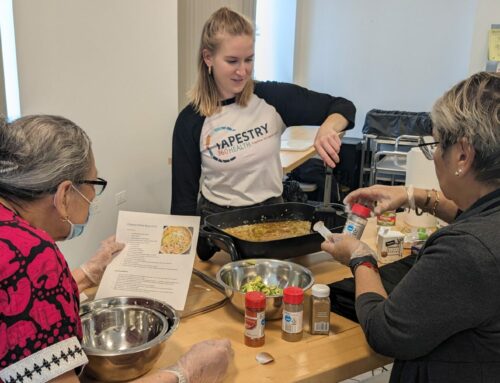News
Using acupuncture to help with chronic pain

 Since we started offering acupuncture in 2017, we have found it helpful for patients with chronic pain — some with daily pain for 20 years.
Since we started offering acupuncture in 2017, we have found it helpful for patients with chronic pain — some with daily pain for 20 years.
Acupuncture is provided by students and faculty from the Pacific College of Oriental Medicine and a local acupuncture provider during a seven-week program that also includes Tai Chi, education and stress-reducing activities. Offering these services as group visits allows patients who are uninsured or underinsured to access complementary modalities that they would otherwise be unable to afford.
At the end of the program, we have found on average that pain scores go down 2 points on a 10 point scale and function improves on average 2 points on a 10 point scale. This is better than most people do on opioid therapy for chronic pain.
Acupuncture has been in the news lately because Medicare has been debating whether or not to cover its use for chronic pain, typically defined as pain that lasts 12 weeks or more. According to the Washington Post, “Acupuncture continues to gain legitimacy as a treatment for pain relief in the United States. A 2014 review reported that more than 10 million acupuncture treatments are administered each year.”
As the newspaper noted, the evidence base for acupuncture’s medical effectiveness is still being explored, but our practical experience has shown that acupuncture is extremely safe and very effective in relieving chronic pain. Here’s a bit more information about the practice.
Chronic pain & Integrative medicine
Chronic pain is a complex condition. It responds best to an integrative treatment approach–one that uses multiple different ways to ease if not heal the pain. This is different than a one-pronged approach such as prescribing opioids to deal with the pain. As we now know, such a one pronged approach can bring problems of its own.
We also know stress response and complex neurobiological mechanisms lead to chronic pain even if we don’t understand how this happens. Therefore, to treat pain, we address core health-related behaviors such as sleep, nutrition and eating habits, physical activity, and healthy relationships.
Acupuncture – as well as other evidence-based complementary modalities including yoga, physical therapy, and mindfulness practices — can help reduce the perception of stress and affect these neurobiological pathways.
A non-pharmacologic and non-opioid pharmacologic approach to pain as a first-line treatment is now encouraged by several healthcare organizations including the Joint Commission and CDC. Attached is a one-page fact sheet that details the non-pharmacologic approach to pain management and wellbeing.
Acupuncture and other integrative medical services are offered to patients of Tapestry 360 Health. To learn more or make an appointment, please call 773-751-7800.
 Since we started offering acupuncture in 2017, we have found it helpful for patients with chronic pain — some with daily pain for 20 years.
Since we started offering acupuncture in 2017, we have found it helpful for patients with chronic pain — some with daily pain for 20 years.
Acupuncture is provided by students and faculty from the Pacific College of Oriental Medicine and a local acupuncture provider during a seven-week program that also includes Tai Chi, education and stress-reducing activities. Offering these services as group visits allows patients who are uninsured or underinsured to access complementary modalities that they would otherwise be unable to afford.
At the end of the program, we have found on average that pain scores go down 2 points on a 10 point scale and function improves on average 2 points on a 10 point scale. This is better than most people do on opioid therapy for chronic pain.
Acupuncture has been in the news lately because Medicare has been debating whether or not to cover its use for chronic pain, typically defined as pain that lasts 12 weeks or more. According to the Washington Post, “Acupuncture continues to gain legitimacy as a treatment for pain relief in the United States. A 2014 review reported that more than 10 million acupuncture treatments are administered each year.”
As the newspaper noted, the evidence base for acupuncture’s medical effectiveness is still being explored, but our practical experience has shown that acupuncture is extremely safe and very effective in relieving chronic pain. Here’s a bit more information about the practice.
Chronic pain & Integrative medicine
Chronic pain is a complex condition. It responds best to an integrative treatment approach–one that uses multiple different ways to ease if not heal the pain. This is different than a one-pronged approach such as prescribing opioids to deal with the pain. As we now know, such a one pronged approach can bring problems of its own.
We also know stress response and complex neurobiological mechanisms lead to chronic pain even if we don’t understand how this happens. Therefore, to treat pain, we address core health-related behaviors such as sleep, nutrition and eating habits, physical activity, and healthy relationships.
Acupuncture – as well as other evidence-based complementary modalities including yoga, physical therapy, and mindfulness practices — can help reduce the perception of stress and affect these neurobiological pathways.
A non-pharmacologic and non-opioid pharmacologic approach to pain as a first-line treatment is now encouraged by several healthcare organizations including the Joint Commission and CDC. Attached is a one-page fact sheet that details the non-pharmacologic approach to pain management and wellbeing.
Acupuncture and other integrative medical services are offered to patients of Tapestry 360 Health. To learn more or make an appointment, please call 773-751-7800.


 Since we started offering acupuncture in 2017, we have found it helpful for patients with chronic pain — some with daily pain for 20 years.
Since we started offering acupuncture in 2017, we have found it helpful for patients with chronic pain — some with daily pain for 20 years. 










